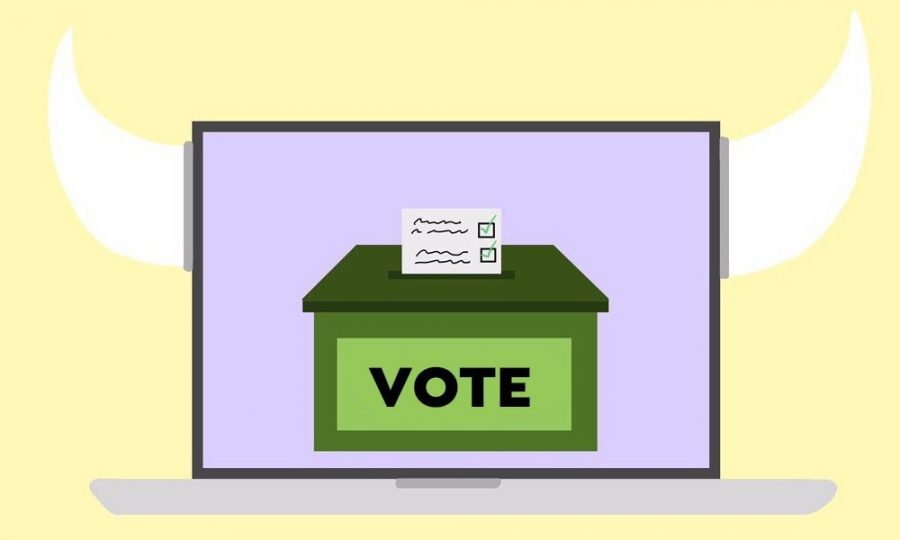Paly’s extended closure has caused ASB candidates to shift their campaigns online, racing to get ahead by the time voting closes at 4 p.m. today.
As voting for Palo Alto High School’s Associated Student Body election reaches its end at 4 p.m. today, the curtain closes on the struggles of the candidates who have had to adjust to new challenges as a result of the COVID-19 pandemic.
The fourth quarter’s all-digital format has changed the way candidates campaign, introducing challenges as to how to connect with others as chances for in-person connection have been lost.
Normally, ASB elections consist of three days of in-person campaigning on Paly campus, for candidates to meet people and make speeches, which are published on Youtube. Students in the running have a $20 spending limit for advertisement. After that, voting starts mid week and lasts three days.
But this year, all campaigning has been digitized, candidates have been barred from spending any money and the voting period is now a week long.
Candidates have had to concentrate their energy into finding new ways to campaign. ASB presidential candidate Adora Zheng says that she is focusing her campaign efforts on social media and her campaign website, as well as looking into digital outreach.
The main problem that the candidates have faced is the need to be known to a large number of people within a short period of time. Although digital communication can be a helpful tool, it can only do so much for promoting oneself.
In turning to social media, candidates are limited to their follower base before the election announcements, which means that students who don’t know about the candidate or their policies are left without much information.
But some, like sophomore class presidential candidate Johannah Seah, have made additional efforts to reach others by creating a separate social media account for the election.
“At school you have access to all your classmates and friends… that means communication, that means approachability,” Seah says. “Now that we are restricted to online, it is a lot different.”
For Seah, that means “a lot more public things, we have stories, we have posts. Something I am trying… is texting people and texting group chats so they can ask questions.”
A great effort to be sure, but even group chat texting and multiple media accounts are still only seen by the candidates follower count or mutuals. Most social media posts are also only seen by followers or in the rare occasion on explore pages, meaning that even a constant stream of election posts from candidate accounts may not reach all of their intended audience.
On top of this, enterprising candidates have no guarantee that their efforts will be responded to.
“The hard part is that when you don’t get to talk to people in person,” senior class presidential candidate Emma Lin says, “they don’t really follow up. I posted a really vague list of online goals, but since it’s not an in person thing… there’s a very few number of people who are willing to respond.”
This lack of enthusiasm doesn’t bode well for the candidates, as they rely on students to be engaged and informed about their policies to vote.
Another problem that Seah and other candidates have to face when looking into online campaigning is reaching out to people who don’t have social media, one of the main tools used for these elections.
“It’s either social media or text messaging, but there really is no other alternative, or there is no alternative that I have found yet,” says junior class presidential candidate Mathew Signorello-Katz.
Students who don’t have social media can still keep up with election news as student activities director Matthew Hall is making daily updates on Schoology.
Despite the election challenges, ASB still is striving to serve Paly’s student body by hosting all meetings online through Zoom, and will continue to function as normal.
“There are certain things that ASB does towards the end of the year that are not event planning or anything like that,” says Lin. “We’re still going to be working on staff appreciation, we’re still going to be writing our legacy letters for the incoming officers, and I know the senior officers are working a lot with Mr. Hall on baccalaureate and graduation.”
Written by Corie Jiang and Gwyneth Wong. Art by Corie Jiang.
